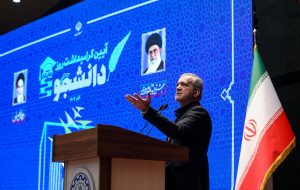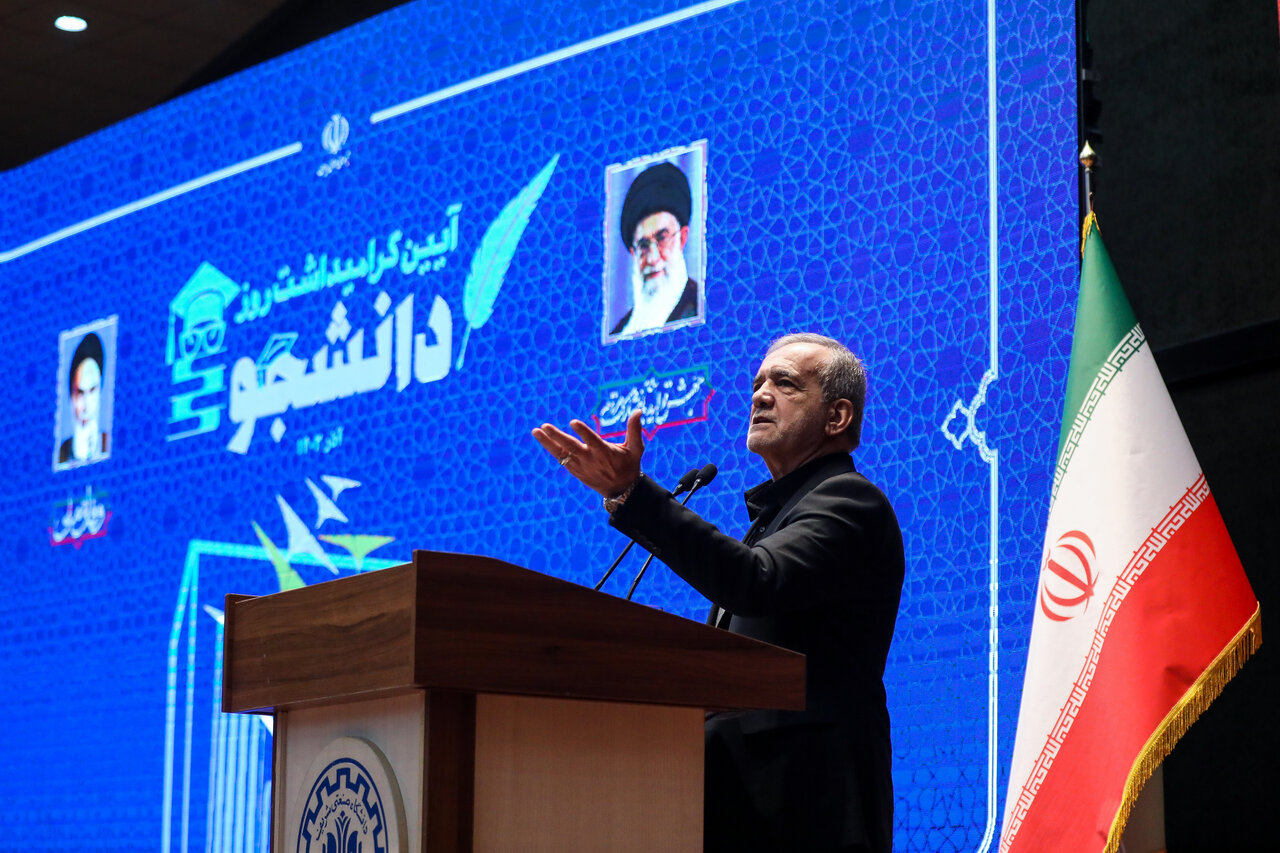‘Iran won’t retreat in the face of any power’
TEHRAN – In a powerful address during the Student Day ceremony at the Sharif University of Technology, Iranian President Masoud Pezeshkian declared that Iran will not retreat in the face of any power, emphasizing the nation’s strength and resilience. Addressing a gathering of students and professors, Pezeshkian underscored the vital role of youth in shaping


TEHRAN – In a powerful address during the Student Day ceremony at the Sharif University of Technology, Iranian President Masoud Pezeshkian declared that Iran will not retreat in the face of any power, emphasizing the nation’s strength and resilience.
Addressing a gathering of students and professors, Pezeshkian underscored the vital role of youth in shaping the country’s future.
Highlighting the significance of Student Day as a platform for demanding rights, Pezeshkian remarked, “Students are the hope for the country’s future.” He praised their ability to express their views freely, stating, “A student is not dependent on positions and ranks; they can speak the truth and defend rights without fear.”
Pezeshkian drew attention to recent student protests in the United States and Europe against the ongoing Israeli violence in Gaza and Lebanon, contrasting them with the relatively muted response from Iranian universities. He urged students to raise their voices against injustices, saying, “When a group of killers claims to advocate for human rights while committing atrocities, it is essential to protest against that.”
‘Elites must lead the way to national vision’
Elsewhere in his address, Pezeshkian emphasized the importance of capable individuals stepping forward to achieve the nation’s vision as outlined by the Leader of the Islamic Revolution.
“The country belongs to you,” Pezeshkian declared, calling for unity among the youth to bring about necessary changes in leadership. He underscored that for the nation to progress toward its envisioned future, elite and competent individuals must take charge while those lacking capability must step aside.
The president highlighted the need for a stronger connection between government and universities, stating, “Our universities are of the second generation. They need to be upgraded to the third and fourth generations.” He elaborated that a fourth-generation university is one that integrates with society to address real-world problems, while a fifth-generation institution should be focused on long-term goals, looking a century into the future.
Addressing Iranian student movements, Pezeshkian expressed his expectations for them to become advocates for rights, emphasizing that such advocacy transcends political affiliations. “Advocates for rights do not recognize left or right. We must dialogue together,” he said. He stressed the importance of informed decision-making, insisting that policies should be grounded in scientific research, international experience, and expert consultation.
‘Collective action needed to address FATF challenges’
The president also highlighted the critical need for Iran to implement Financial Action Task Force (FATF) standards internally, emphasizing the importance of transparency and accountability in financial transactions. He urged students and academics to collaborate in addressing systemic issues that he said hinder the nation’s economic stability.
The president called for a united effort from universities and elite professionals to tackle these challenges, stating, “With the help of universities and elites, we can solve problems.”
Speaking on the matter of official appointments, Pezeshkian explained that the selection process for managers is based on individual capabilities, social capabilities, and structural capabilities. He emphasized the importance of education and communication skills in determining leadership potential.
He posed a critical question regarding societal cohesion: “Are our doctors, engineers, merchants, and industrialists currently moving towards a clear goal, or is everyone moving in a different direction?” Pezeshkian argued that a society with well-defined goals and collaborative efforts among its professionals is more likely to thrive than one where individuals operate in isolation.
As part of his ongoing efforts to improve governance, Pezeshkian announced plans for a meeting with newly appointed governors to discuss strategies for enhancing local administration and addressing community needs. He remains optimistic about the potential for collective action to create a more organized and purposeful society.
